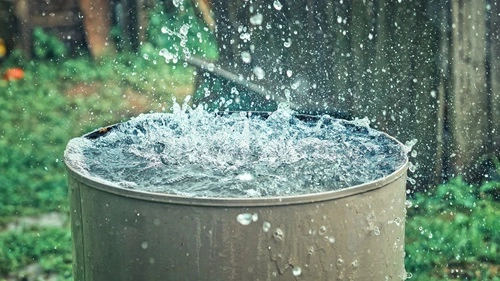No, it is not illegal to collect rainwater in Utah, but it is regulated under state water laws to ensure that it aligns with the state’s prior appropriation system. Individuals can collect rainwater within certain limitations and by following specific registration or permit requirements for larger systems.
Understanding Rainwater Collection in Utah
Utah, like many Western states, adheres to a prior appropriation water rights system, where water is treated as a public resource allocated to users based on seniority of rights. Rainwater harvesting, while not outright banned, is regulated to maintain the balance of water resources and prevent unauthorized diversion from water systems.
Legal Framework for Rainwater Harvesting in Utah
1. Rainwater Harvesting Is Legal but Regulated
- Rainwater harvesting in Utah is legal for personal use, but the state imposes conditions to ensure compliance with water rights laws. The goal is to prevent disruptions to downstream users who may have senior claims to water resources.
2. Utah Administrative Code R655-16
- The Utah Division of Water Rights regulates rainwater harvesting through administrative rules. Key provisions include:
- Residents can collect up to 2,500 gallons of rainwater without a water rights permit if they register with the state.
- For smaller systems, such as those with storage capacities of under 100 gallons, no registration is required.
3. Registration and Permits
- Larger collection systems must be registered with the state. This ensures that the use of rainwater complies with water allocation laws and does not affect the flow of water to legally entitled users downstream.
4. Approved Uses of Collected Rainwater
- Rainwater can be used for irrigation, landscaping, and other non-potable purposes.
- With proper treatment, rainwater may also be used for drinking and household purposes.
Why Is Rainwater Collection Regulated in Utah?
1. Water Rights System
- Utah’s water laws are rooted in the principle that all water is a public resource, and its use is subject to allocation through water rights. Rainwater contributes to the hydrological cycle and eventually feeds rivers, streams, and aquifers. Collecting rainwater without regulation could potentially interfere with the rights of downstream users.
2. Protecting Water Resources
- By regulating rainwater harvesting, Utah ensures that the collection and use of rainwater do not negatively impact the state’s water supply, which is critical in a desert climate with frequent droughts.
3. Balancing Conservation and Regulation
- While Utah promotes water conservation through measures like rainwater harvesting, the state’s regulatory framework ensures that this practice does not conflict with long-standing water rights agreements.
Benefits of Regulated Rainwater Collection
1. Encourages Sustainable Practices
Utah’s regulations allow individuals to contribute to water conservation efforts while maintaining compliance with state water laws.
2. Supports Water Conservation During Droughts
By collecting rainwater, residents can reduce reliance on municipal water supplies, particularly during periods of low precipitation.
3. Minimizes Stormwater Runoff
Harvesting rainwater can help reduce flooding and erosion caused by stormwater runoff.
Challenges and Considerations
1. Registration Requirements
Some residents may view the registration or permitting process for larger systems as an administrative burden.
2. Limited Storage Capacity
While smaller systems (under 100 gallons) do not require registration, they may not meet the needs of households seeking to collect substantial amounts of water.
3. Compliance with Local Codes
Rainwater harvesting systems must comply with local building and plumbing codes, particularly for potable use.
Related FAQs
Q. Why is rainwater collection regulated in Utah?
Ans: Rainwater collection is regulated to protect water rights and ensure that downstream users receive their legally entitled share of water.
Q. Can I collect rainwater in Utah without a permit?
Ans: Yes, you can collect up to 100 gallons of rainwater without registration or a permit. Systems exceeding this capacity must be registered, and larger systems may require a permit.
Q. What are the approved uses of collected rainwater?
Ans: Collected rainwater can be used for irrigation, landscaping, and, with proper treatment, drinking and household purposes.
Q. Do I need to treat rainwater for irrigation?
Ans: No, treatment is not necessary for irrigation or landscaping. However, water intended for potable use must be filtered and treated.
Q. Are there penalties for unregistered rainwater harvesting in Utah?
Ans: Using an unregistered or non-compliant system exceeding the allowable limits may result in fines or legal action from the Utah Division of Water Rights.

